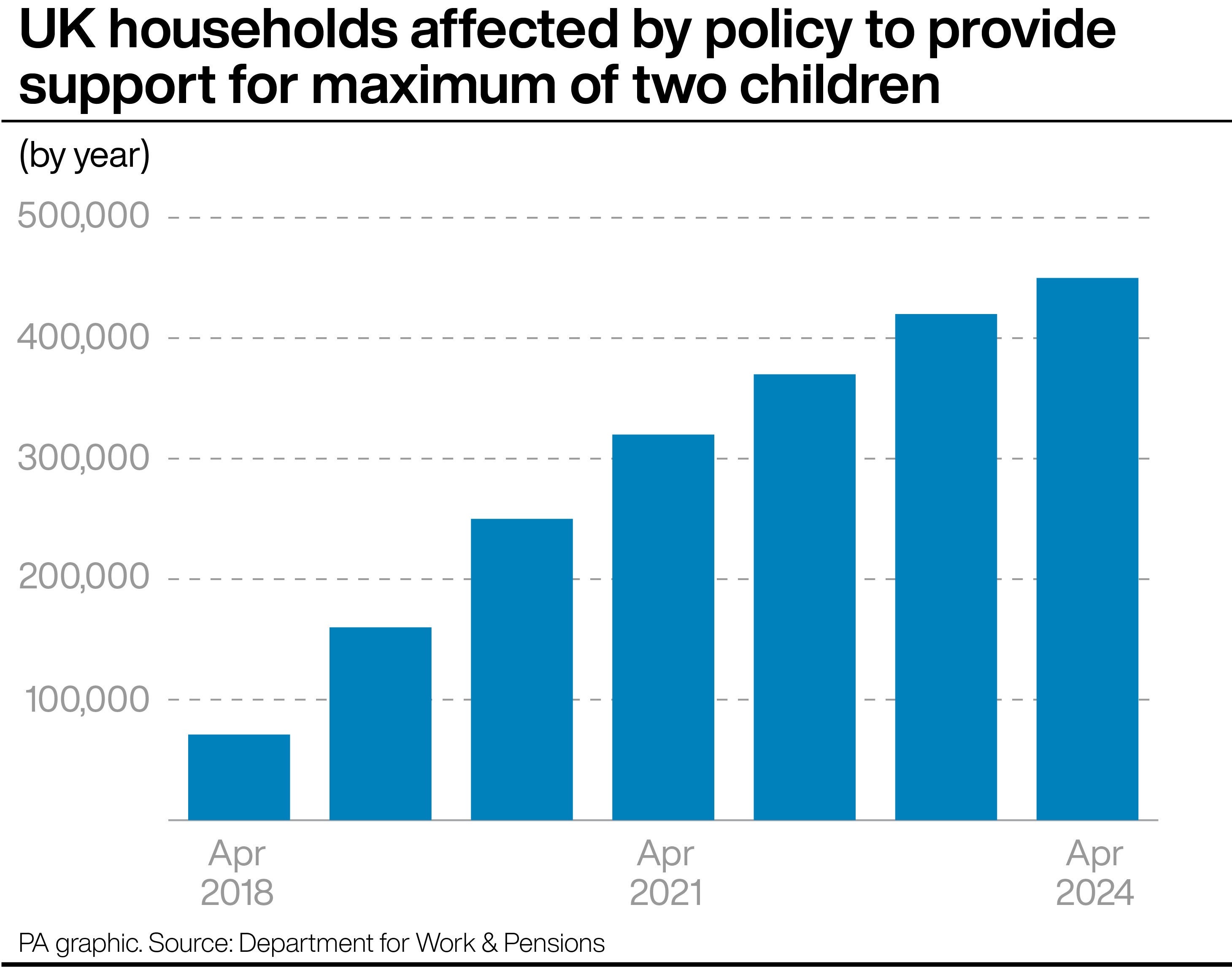An unexpected increase in government borrowing means abolishing the two-child benefit cap is unaffordable, a Treasury minister has said.
Treasury chief secretary Darren Jones appeared to explicitly rule out abolishing the cap at the next Budget in an interview on Wednesday, while conceding it was not a decision the Government would want to make “in our hearts”.
His comments come as figures released on Wednesday showed borrowing in July jumped by far more than expected, standing at £3.1 billion rather than the £1.1 billion most economists had pencilled in.
Asked about the prospects of abolishing the two-child benefit cap at the Budget on October 30, Mr Jones told the BBC’s World At One programme: “You have to just look at the economic statistics that we’re talking about today to understand why we just can’t afford to do that right now.”
He said abolishing the cap would cost £2 billion to £3 billion per year, while borrowing for the first four months of the financial year was already £4.7 billion more than expected.
Saying the public expected the Government to get public spending “back under control”, he added: “That means that we have to make very difficult decisions that in our hearts we wouldn’t want to have to make, and that includes on the two-child cap as well.”
The Government has insisted it is committed to reducing child poverty, with Education Secretary Bridget Phillipson and Work and Pensions Secretary Liz Kendall heading up a ministerial task force to develop a child poverty strategy – something that featured in Labour’s manifesto.

But charities, including those consulted by the task force, have repeatedly said abolishing the two-child limit was the simplest and most effective way of lifting children out of poverty.
Resistance to abolishing the limit brought the Government’s first rebellion, with seven MPs voting in favour of an opposition amendment to the King’s Speech calling for an end to the policy.
Those MPs – including former shadow chancellor John McDonnell and former leadership candidate Rebecca Long-Bailey – had the Labour whip suspended after their rebellion.
Asked about potential tax rises at the coming Budget, Mr Jones reiterated his party’s manifesto pledge not to increase income tax, employee national insurance contributions, or VAT.










